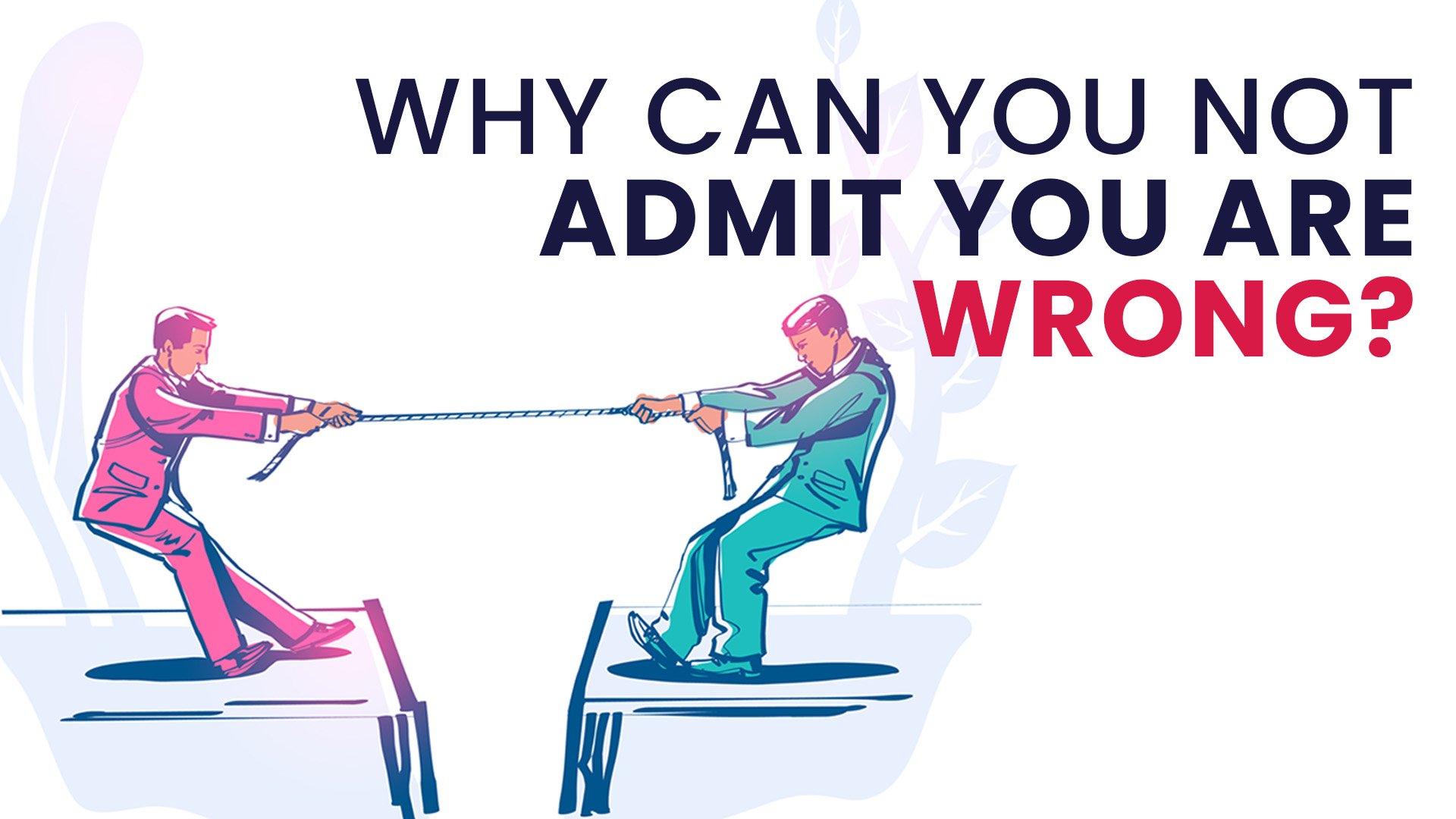There are few things as difficult as accepting that you are wrong. It feels unpleasant, but it can also be hugely important. If we cannot admit a mistake, we also can’t fix it or improve. Admitting it is not always fun, but it is essential.
One of the first steps towards doing better, learning, and growing is understanding why we sometimes struggle so much with taking responsibility.
1. We believe that admitting mistakes makes us feel weak
One common reason is that we feel weak or that we are showing weakness when we say we are wrong. This comes from the mistaken assumption that strong or worthy people are not wrong, ever. Often, this is an idea that comes from our families or other people.
The antidote to this is accepting that mistakes are a part of life. Showing vulnerability is a sign of strength and a normal part of learning and doing better.
Instead of seeing our mistakes as a problem, we can see them as a showcase of our efforts, and our ability to admit them as a mark of inner strength.
2. We have a hard time seeing the perspective of other people
Another reason is that we can have a hard time acknowledging other perspectives and accepting that another person might be right. This is not always linked to bad intentions. We might all find ourselves in this position when the other perspective is very unusual or rare or when it challenges our preconceived notions.
It’s important to keep an open mind and allow yourself to consider new possibilities. You don’t have to accept them right away, but just asking yourself if it could be true and how could it be true can do a lot to help you keep your opinions flexible.
Flexibility is a great advantage in many situations, and it will allow you to avoid many awkward situations. Before you dismiss something out of hand, you can always consider whether it can or could be true and accurate. Even if it is not, accepting and exploring new perspectives can always bring you new ideas and help you achieve better solutions. Make sure you always give the other perspective a chance before you give it up.
3. You are oblivious, unaware of the mistake
An issue is that we don’t always notice our mistakes or know that something has happened. It is, of course, difficult to make a change if we don’t know that a situation requires it. But there are still things we can do here.
First, make sure that you are open to feedback from other people. Let your colleagues or friends know you are looking for feedback on your decisions and results. Ask for criticism and then respond nicely to it.
You don’t have to agree with everything, just remain open to some ideas others might suggest. Also, stay attentive to other signs that something did not go as well as you hoped, like people’s reactions, the actual outcome, or any side effects you might not have known before.
4. You don’t know how to accept a mistake
Often, we come from families and schools where mistakes were punished. This can teach us to hide them and, very frequently, to find ourselves stumped when we have to talk about it. We might be afraid of the other person’s reaction or find yourself unsure of how to approach the issue.
In this case, it’s often tempting to try and ignore it and wait for it to go away, but this is likely to lead to more trouble than it’s worth. Instead, it is useful to be open and honest when discussing such things. Focus on what you have recognized and how you intend to fix it in the future. Usually, that’s all you need.
5. You are worried that it will be used against you
In some places, it doesn’t feel safe to talk about mistakes. Environments where errors are harshly punished or taken personally can be difficult to manage. But this is not a problem with the idea of discussing problems openly, but rather an issue with the environment.
Work to change the culture if you can and, if it is not possible, consider what you can do to face your mistakes and approach them constructively. Always focus on offering solutions and ways in which you intend to fix or improve what has happened.





